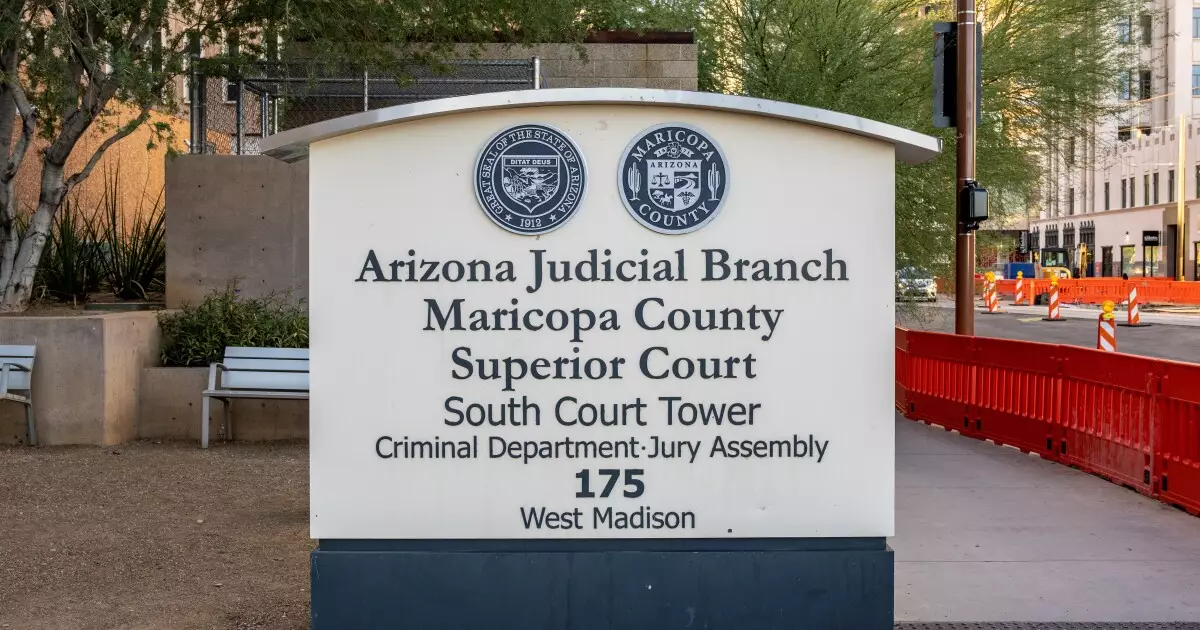A recent lawsuit in Gilbert, Arizona, has reignited debates regarding municipal fiscal policies and constitutional governance. The Goldwater Institute, known for defending limited government principles, filed a legal challenge against the town council following their decision to increase sales, use, and lodging taxes. This decision, approved by Gilbert officials on October 22, aims to generate approximately $55 million annually, ostensibly to fund essential infrastructure projects. However, the lawsuit contends that this move violates the Arizona Constitution, which expressly restricts local governments from imposing or ratcheting up transaction-based taxes on various services executed within the state.
This lawsuit follows another legal battle initiated by the Goldwater Institute against the town of Payson, further underscoring a growing trend of scrutiny from conservative watchdogs targeting local governments’ fiscal strategies. The plaintiffs in Gilbert’s case include a concerned resident and the Home Builders Association of Central Arizona, reinforcing the argument that local taxpayers and related organizations are directly affected by these financial decisions.
Council’s Justification and Public Sentiment
In defending their decision, Gilbert officials have cited “critical infrastructure needs” as the driving force behind the tax hikes. According to statements released by the town, there are 23 major infrastructure projects identified—spanning parks, recreation areas, and public safety initiatives—with an estimated value exceeding $700 million. The town claims that maximizing cash funding for these projects will alleviate long-term costs and brace the fiscal burden on the taxpayer.
However, the public’s response is mixed. While some residents express the necessity of upgrading aging infrastructure, others view the tax hikes as an undue financial strain, especially in the aftermath of economic uncertainties that have affected many families. Notably, with a population of over 280,000, there is significant potential for dissent among taxpayers who face increasing costs in various aspects of daily life.
The Broader Implications of Municipal Governance Disputes
The Gilbert lawsuit not only raises questions about local tax policies but also signals a larger discourse on the balance of power between municipal governments and constitutional law. The Arizona Constitution’s clause prohibits local entities from enacting transaction-based taxes, a stipulation that could set a significant precedent if upheld. The implications of this case could reverberate across other municipalities in Arizona and potentially beyond, especially for towns grappling with similar financial dilemmas.
In light of the growing concern over governance and municipal overreach, taxpayers are becoming more vigilant. This reflects a broader societal trend where public involvement and scrutiny of local government actions is increasingly seen as essential to upholding democratic principles.
As the legal battle unfolds, the situation in Gilbert exemplifies the need for transparency and accountability in municipal decision-making. The outcomes of such lawsuits could shape future policies concerning infrastructure financing and taxation. Moreover, they reiterate the importance of community engagement to ensure that local governments act in the best interests of their constituents. As residents and organizations rally against perceived violations of their rights, the stakes in this ongoing dispute remain high, not only for Gilbert but for all cities looking to balance growth with fiscal responsibility.

